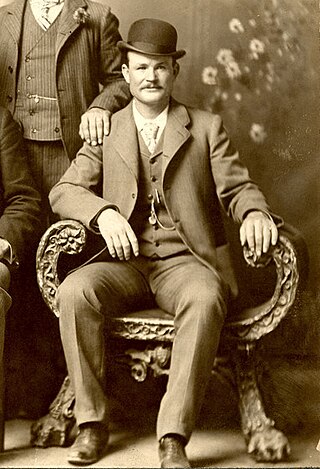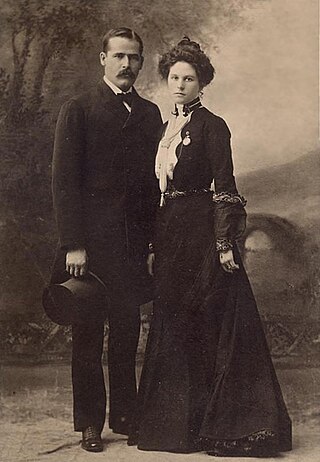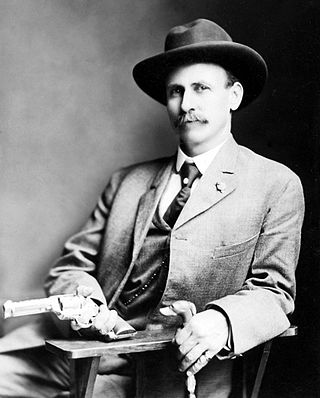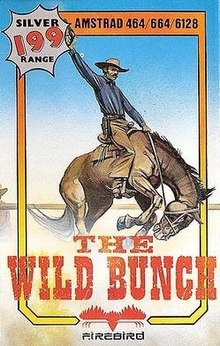Gameplay
The Wild Bunch is a text-based adventure game, with limited use of graphics. The player controls a protagonist who finds a dying man who was attacked by a member of the Wild Bunch gang. Before dying he describes the culprit and gives the player his Colt 45, just as the local sheriff arrives on the scene. The player is assumed to be the murderer and the sheriff tries to arrest them, but they escape. The object of the game is to prove the protagonist's innocence by tracking down the real murderer and handing him over to the law. Along the way the player can also arrest and hand in other members of the gang, whose descriptions are obtained from wanted posters. Scoring is based on the money earned from rewards, gambling at poker or finding gold nuggets while travelling. The game ends if the protagonist dies due to their strength reaching zero, they are killed in a gunfight or are arrested. It is, however, won by successfully tracing, identifying and handing in the real murderer, which usually involves not killing him in a gunfight but taking him in at gunpoint.
At all times during the game the player is pursued by Charles A. Siringo of the Pinkerton Detective Agency. Charlie Siringo was a real life lawman during the time that the game was set, though the game is not based on any true story.
At the start of the game, the player can choose to start off in one of five towns. Each town has a number of premises which can be visited to obtain information about the Wild Bunch gang and how to avoid being arrested. The player can also earn money by playing poker, increase their strength by drinking in the saloon bar or buy items of use in the store. The player can travel between towns (journey time is reduced by buying a horse and saddle). When travelling, food and water are consumed on a daily basis and each day the player runs a risk of encountering enemies which must be dealt with by fleeing, fighting or bribing them. Random events such as sandstorm, rockslides and even the player's horse going lame will increase journey times. Running out of food or water reduces the player's strength and their horse can also die from this. The traveling environment will affect the supplies used. While in the plains the player's horse does not consume horse food or water, apparently finding sufficient from the plains. While traveling through the mountains or deserts, however, the player will consume water from canteens and their horse will consume horse food. If their horse runs out of food in the mountains the game will comment: "Horses don't eat rocks". If their horse runs out of food in the desert the game will comment: "Horses don't eat sand". The player's own food will decrease regardless of the terrain being traveled. When first arriving in a new town, there is a risk of being arrested, although if this is avoided it is possible to stay in the town for as long as is needed. This risk is somewhat mitigated by visiting the telegraph office before setting out to see which town the player's pursuer is currently staying in. This may change while the player travels.
The game has three levels of difficulty to choose from and allows the player to choose a name for the character they control. The difficulty level is tied directly to how long Charles A. Siringo stays in one town looking for the player. On the hardest difficulty level he seems to stay put for no more than three days, meaning that even if the player checks the telegraph office there is a strong chance he has moved to a new town before the player's own journey completes.

Robert LeRoy Parker, better known as Butch Cassidy, was an American train and bank robber and the leader of a gang of criminal outlaws known as the "Wild Bunch" in the Old West.

The Wild Bunch, also known as the Doolin–Dalton Gang, or the Oklahombres, were a gang of American outlaws based in the Indian Territory in the late 19th and early 20th centuries. They were active in Kansas, Missouri, Arkansas, and Oklahoma Territory during the 1890s—robbing banks and stores, holding up trains, and killing lawmen. They were also known as The Oklahoma Long Riders because of the long dusters that they wore.

Harry Alonzo Longabaugh, better known as the Sundance Kid, was an outlaw and member of Butch Cassidy's Wild Bunch in the American Old West. He likely met Butch Cassidy during a hunting trip in 1883 or earlier. The gang performed the longest string of successful train and bank robberies in American history.

Gunfighters, also called gunslingers or in the late 19th and early 20th century gunmen, were individuals in the American Old West who gained a reputation of being dangerous with a gun and participated in shootouts. Today, the term "gunslinger" is more or less used to denote someone who is quick on the draw with a handgun, but this can also refer to those armed with rifles and shotguns. The gunfighter is also one of the most popular characters in the Western genre and has appeared in associated films, television shows, video games, and literature.

Doomtown: Reloaded is an expandable card game based on the Deadlands role-playing game. It was originally a collectible card game that ran from 1998 through 2001 and was revived as the Reloaded version in 2014. It was published by Wizards of the Coast (WotC) under license to Pinnacle Entertainment Group until January 2000, when WotC quit production and the license transferred to Alderac Entertainment Group.

Harvest Moon: A Wonderful Life is a video game that was released in Japan in September 2003 and March 2004 in North America for the GameCube. It was developed and published by Marvelous Interactive, and is part of the long-running Story of Seasons series of video games. The GameCube version offers connectivity with the Game Boy Advance game, Harvest Moon: Friends of Mineral Town.
Tilt is an American drama television series set against the backdrop of the (fictional) World Championship of Poker tournament in Las Vegas, and with the tagline "You're playing poker. They're playing you." The series first aired on January 13, 2005, and is the second original drama series from ESPN, following Playmakers. It was created by Brian Koppelman and David Levien, who co-wrote the poker-themed feature film Rounders.
The Hole-in-the-Wall Gang was a gang in the American Wild West, which took its name from the Hole-in-the-Wall Pass in Johnson County, Wyoming, where several outlaw gangs had their hideouts.

Henry Plummer was a prospector, lawman, and outlaw in the American West in the 1850s and 1860s, who was known to have killed several men. He was elected sheriff of what was then Bannack, Idaho Territory, in 1863 and served until 1864, during which period he was accused of being the leader of a "road agent" gang of outlaws known as the "Innocents," who preyed on shipments from what was then Virginia City, Idaho Territory to other areas. In response some leaders in Virginia City formed the Vigilance Committee of Alder Gulch and began to take action against Plummer's gang, gaining confessions from a couple of men they arrested in early January 1864. On January 10, 1864, Plummer and two associates were arrested in Bannack by a company of the Vigilantes and summarily hanged. Plummer was given a posthumous trial in 1993 which led to a mistrial. The jury was split 6–6.

The Warriors is a 2005 beat 'em up video game based on the 1979 film of the same name, developed by Rockstar Toronto and published by Rockstar Games. It was released in October 2005 for the PlayStation 2 and Xbox, and February 2007 for the PlayStation Portable; the PSP port was developed by Rockstar Leeds. The game was re-released on the PlayStation 3 in May 2013 and PlayStation 4 in July 2016, via the PlayStation Network. Set in gritty 1970s New York City, the story follows the eponymous street gang, who are framed for the murder of a respected gang leader and must return to their home turf in Coney Island while being hunted by rival gangs and the police. The game expands on the film's plot, with the first half covering events that took place three months before the events of the film.

Gun is a Western-themed action-adventure video game developed by Neversoft and published by Activision for the PlayStation 2, Xbox, GameCube, Microsoft Windows, and Xbox 360 in 2005. The PlayStation Portable version was released a year later under the title Gun: Showdown, this version features new side-missions, a multiplayer mode, and other additions that were not available in the console versions.

The Robbers Roost was an outlaw hideout in southeastern Utah used mostly by Butch Cassidy and his Wild Bunch gang in the closing years of the Old West.
David Rudabaugh was a cowboy, outlaw, and gunfighter in the American Old West. Modern writers often refer to him as "Dirty Dave" because of his alleged aversion to water, though no evidence has emerged to show that he was ever referred to as such in his own lifetime.

Harvey Alexander Logan, also known as Kid Curry, was an American outlaw and gunman who rode with Butch Cassidy and the Sundance Kid's infamous Wild Bunch gang during the late 19th and early 20th centuries. Despite being less well-known than his fellow gang members, he has since been referred to as "the wildest of the Wild Bunch", having reputedly killed at least nine law enforcement officers in five shootings and another two men in other instances. He was involved in numerous shootouts with police and civilians and participated in several bank and train robberies with various gangs during his outlaw days.

Charles Angelo Siringo was an American lawman, detective, bounty hunter, and agent for the Pinkerton National Detective Agency during the late 19th and early 20th centuries.

The Hickok–Tutt shootout was a gunfight that occurred on July 21, 1865, in the town square of Springfield, Missouri between Wild Bill Hickok and gambler Davis Tutt. It is one of the few recorded instances in the Old West of a one-on-one pistol quick-draw duel in a public place, in the manner later made iconic by countless dime novels, radio dramas, and Western films such as High Noon. The first story of the shootout was detailed in an article in Harper's Magazine in 1867, making Hickok a household name and folk hero.
The Battle of Ingalls was a gunfight on September 1, 1893 between United States Marshals and the Doolin-Dalton Gang, during the closing years of the Old West era, in Ingalls, Oklahoma. The Doolin-Dalton Gang had been involved in a number of train robberies and bank robberies, beginning around 1891. They had found a safe haven in the town of Ingalls, which unwittingly harbored many outlaws during that period. On September 1, 1893, a posse was organized by the new United States Marshal, Evett Dumas "E.D." Nix, which entered the outlaw town of Ingalls with the intent to capture the gang. The lawmen were engaged in a gunbattle in which three of the fourteen lawmen carrying Deputy Marshals' commissions would die as a result of the battle.

God Forgives… I Don't! is a 1967 Spaghetti Western film directed and written by Giuseppe Colizzi. The film is the first in a trilogy, followed by Ace High and Boot Hill.
Fast travel or teleportation is a video game mechanic used in open world games that allows a player character to instantaneously travel between previously discovered locations without having to traverse that distance in real time. It is a type of warp that is specifically used to traverse the game's world rather than the inside of a level. Sometimes in-game time passes while fast-traveling, while in other cases the travel is simply implied or the player is teleported by magical or technological means. While typically used as a means of providing convenience to the player, fast travel has been criticized as detracting from games' design, as some worlds or quests are designed to incorporate it at the expense of depth, memorability or realism.

Jenny's Journeys is a first-person, single-player, educational video game created in 1984 by the Minnesota Educational Computing Consortium (MECC). It was released for the computer Apple II. In the game, players utilize a compass and a map to navigate a car containing the protagonist, Jenny, through a pixelated town. The player, acting as Jenny, provides directions at each intersection while the car's owner, 'Aunt Jenny', rides along. The objective of the game is to successfully travel from point to point while utilizing the map. There are three levels of difficulty.















